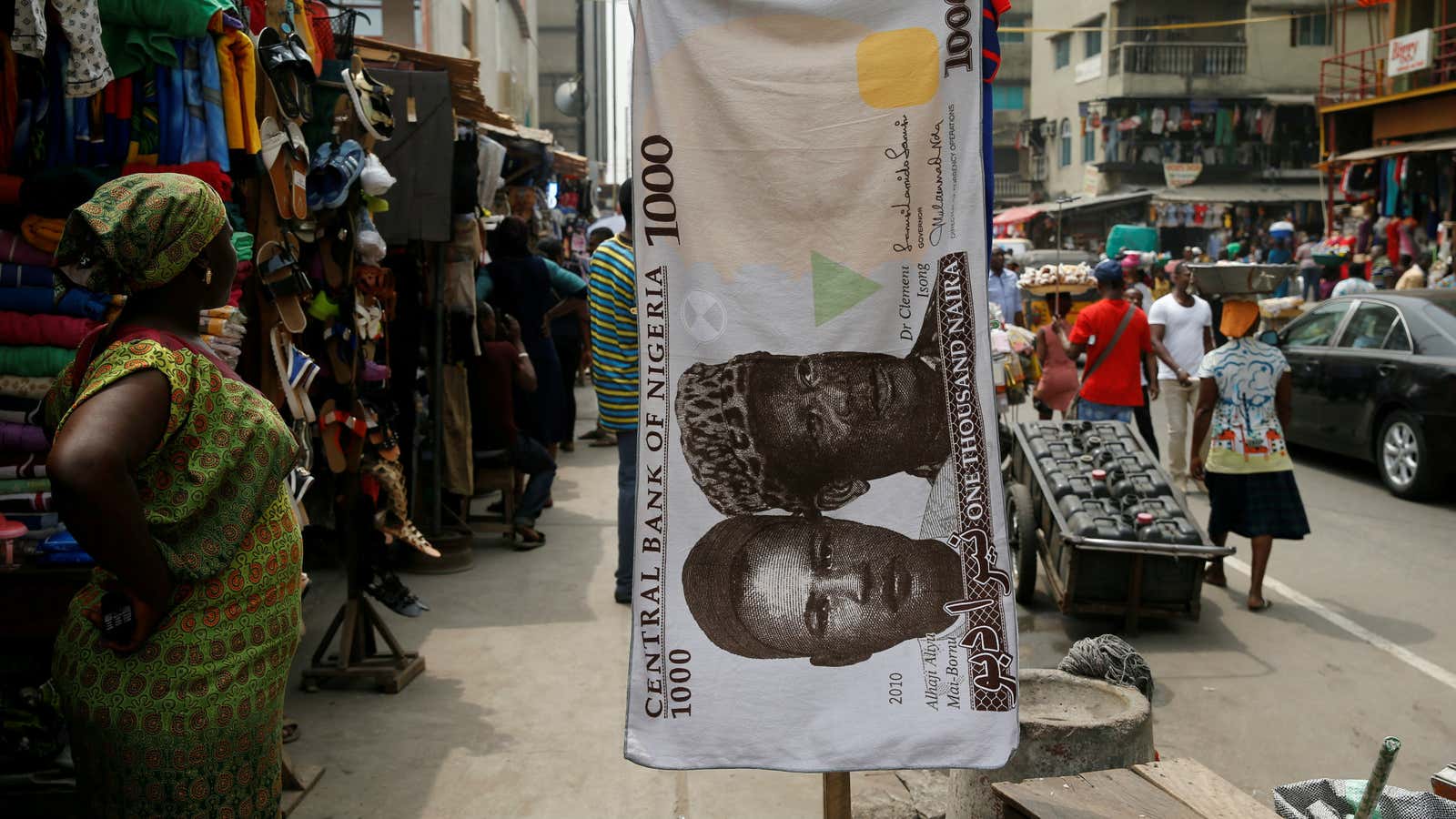Nigeria’s president Buhari has trumpeted his intentions to improve the ease of doing business in Africa’s largest economy. But data—and reality—show that not much progress has been made.
The World Bank Doing Business 2017 report shows Nigeria still ranked among the worst countries to do business. The report does indicate some progress was made with regard to starting a business and strengthening access to credit. Thanks to improved government portals, businesses can now register and begin operations in 25 days. But with 190 countries analyzed this year, Nigeria is ranked 169—same as last year when 189 countries were analyzed.
Nigeria’s government has spun this as its efforts, “slowly but gradually yielding some dividends” as Nigeria’s ranking remains “static” thereby “halting a falling trend in the past several years.”
The report ranks 190 countries across ten areas of business. Nigeria ranked in the top of half in only two areas—getting credit and protecting minority investors.
The reality for businesses and investors in Nigeria over the past year has been particularly difficult. Reduced government earnings, occasioned by low oil prices, have resulted in tight currency controls which have, in turn, triggered a lingering dollar shortage affecting many businesses which rely on foreign exchange to import raw materials and finished products. The currency policy has been held up by investors as the highlight of the difficulties of doing business in Nigeria.
Rather than be determined by economic realities, Nigeria’s most important economic policy in the past year was seemingly decided on the populist whims of the president without regard for the economy or businesses. For investors, the message was simple: the Central Bank was not in charge of deciding economic policy. After months of stubbornly hanging on, Nigeria finally let go of the tight currency controls. But not before damage had been done: investors are pulling out of Nigeria amid its first recession in decades.
If investors needed clues about how they might fare in Nigeria, the recent troubles of MTN, one of Nigeria’s largest investors paints a grim picture. Fresh off settling a sim card dispute for a $1.7 billion fine, the country’s biggest telecoms operator is now faced with allegations from lawmakers of illegally repatriating $14 billion. Lawmakers claim MTN did not follow due process, in this case, an administrative procedure of obtaining a Certificate of Capital Importation (CCI) from the Central Bank. But the company has denied these claims.
Nonso Obikili, policy associate at Economic Research Southern Africa, says MTN’s issues are emblematic of the difficulties of operating in Nigeria. “It highlights what is perhaps the most serious problem with regards to doing business in Nigeria: there is no protection for private property—less so if you are a foreign company,” he says. “At every corner there is something or someone looking to extract rents.”
With Nigeria facing a cash crunch and running a budget deficit, like Obikili, many will see the probe of one of the country’s biggest investors as a shakedown. MTN is not a sole target either. Nigerian lawmakers are discussing a bill to impose a 9% communications service tax on service providers for phone calls, texts, internet data and cable television.
“The message to investors, both domestic and foreign, is that if you get successful enough someone will come after you to extract rent and you will have no protection,” Obikili says. “The expected reaction to that is to not start business at all.”
